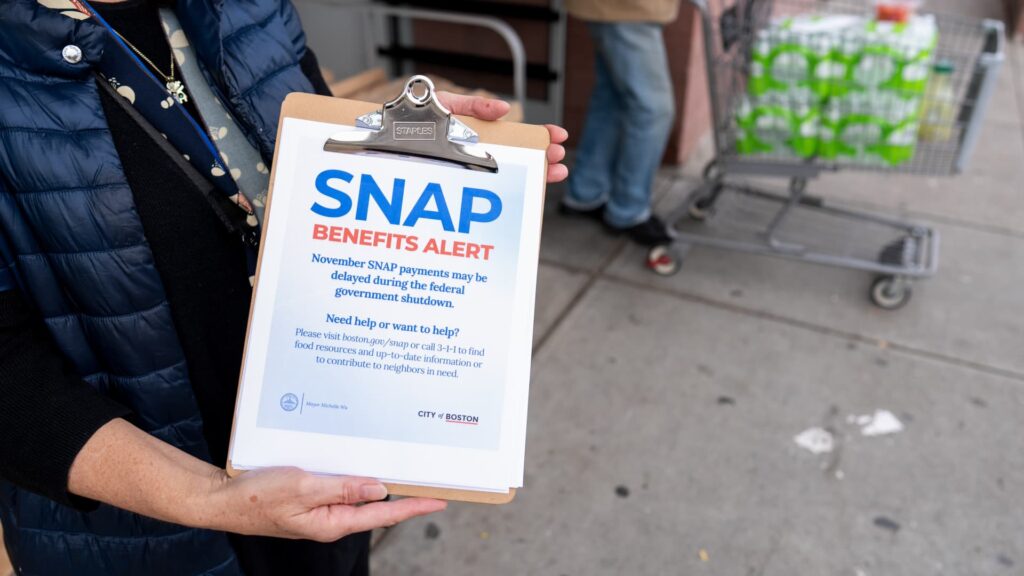A volunteer displays information on the Supplemental Nutritional Assistance Program (SNAP) at a grocery store in Dorchester, Massachusetts, US, on Monday, Nov. 3, 2025.
Mel Musto | Bloomberg | Getty Images
The U.S. Department of Agriculture, in a memo late Saturday evening, threatened to enact financial penalties on states that issued full monthly SNAP benefits for November if they don’t “undo” those food stamp payments.
The late-night directive from the Trump administration adds to the chaos surrounding the anti-hunger program that serves more than 42 million Americans.
The memo, signed by Patrick Penn, Deputy Under Secretary of the USDA’s Food, Nutrition, and Consumer Services, warned states that the administration had not cleared full SNAP benefit payments for November.
“To the extent States sent full SNAP payment files for November 2025, this was unauthorized,” the memo said.
State program administrators were directed to distribute 65% partial payments of SNAP benefits for the month instead, the memo said.
States must also “immediately undo any steps taken to issue full SNAP benefits for November 2025,” the memo said. Failure to comply could result in the USDA cancelling the federal share of administration costs or holding states financially liable for “any overissuances that result from the noncompliance.”
It was unclear how the USDA expects states to claw back any unauthorized SNAP payments.
Sen. Amy Klobuchar, D-Minn., blasted the Trump administration’s move.
“The cruelty is the point. It is their choice to do this,” Klobuchar wrote in a post on the social media site X.
The USDA and the White House did not immediately respond to CNBC’s request for comment.
The memo was first reported by The New York Times.
It comes as some states scrambled to comply with a court ruling on Thursday, when a federal judge in Rhode Island ordered the Trump administration to pay full SNAP benefits for November on Friday. The judge rejected the administration’s plan to partially fund the food stamp program amid the U.S. government shutdown.
The USDA subsequently told states that it would begin disbursing full SNAP benefits to comply with that order, even as the ruling faced an appeal from the Trump administration.
The Associated Press reported late Friday that more than half a dozen states had “confirmed that some SNAP recipients already were issued full November payments on Friday.”
The administration asked the 1st Circuit U.S. Court of Appeals for an emergency injunction to block the order that it pay full food stamp benefits pending the outcome of its appeal of that order. A three-judge panel on the appeals court denied that request on Friday.
But within hours, Supreme Court Justice Ketanji Brown Jackson temporarily paused the order. Jackson directed the 1st Circuit to quickly rule on the administration’s motion to impose an indefinite stay on the lower court’s order mandating full benefits.
The Trump administration previously said that it would not use a contingency fund containing $4.65 billion to fund the Supplemental Nutrition Assistance Program in November.
U.S. District Court of Rhode Island Judge Jack McConnell on Oct. 31 told the administration to use that fund to pay partial benefits, at least, and to explore other options to provide full benefits.
The administration, days later, said it would pay 65% of the benefits, but ruled out using so-called Section 32 funds to make up the difference.
The total cost of full SNAP benefits for the month is around $8 billion.
The program, like other federal programs, has no currently appropriated money, as a result of Congress failing to pass a spending bill. That failure led to the U.S. government shutdown on Oct. 1.
Past administrations have continued paying SNAP benefits during prior shutdowns.

